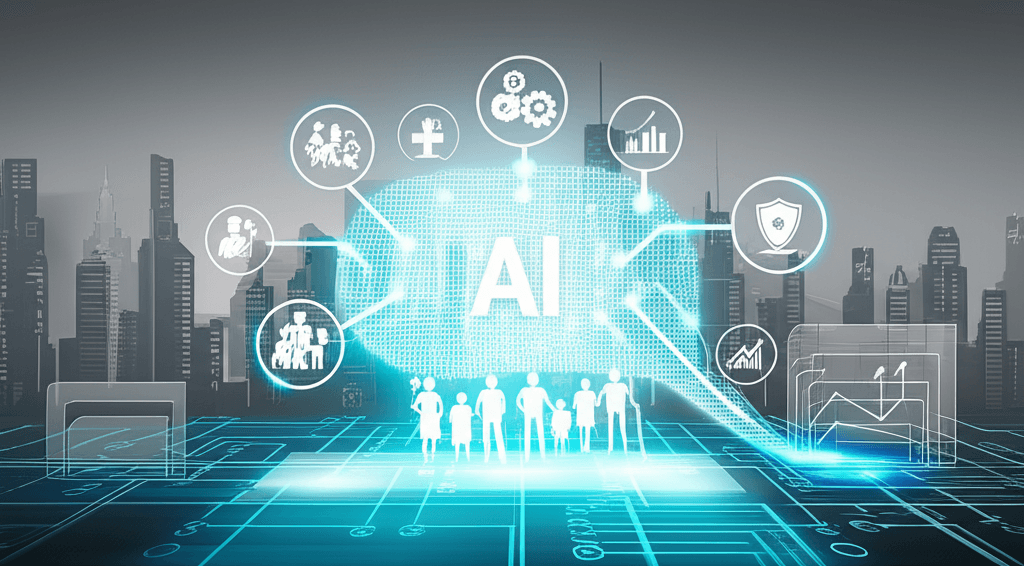NYC's AI Action Plan Transforms City Services, Cybersecurity, and Economy
NYC's strategic AI Action Plan navigates challenges to enhance services, bolster security, and improve urban life responsibly.
June 12, 2025

New York City is increasingly leveraging artificial intelligence to manage its complex urban environment, a reality underscored by discussions anticipated at global forums like the AI Summit London 2025. The city's chief technology leadership has been vocal about the transformative, yet carefully managed, integration of AI across various municipal functions. This adoption is not merely a technological upgrade but a strategic move to enhance public services, bolster security, and improve the quality of life for its residents, all while navigating the ethical and practical challenges of deploying AI in one of the world's largest metropolitan areas. The insights and strategies emerging from New York's AI journey hold significant implications for the broader AI industry, particularly in the realm of smart urban implementation.
A cornerstone of New York City's approach to AI is its comprehensive AI Action Plan, first launched in October 2023 by the NYC Office of Technology and Innovation (OTI).[1][2] This plan serves as a blueprint for the responsible use of AI in city government, identifying opportunities for AI to refine services and processes.[1][2] Within its first year, the OTI initiated or completed 30 of the plan's proposed actions, demonstrating a commitment to its swift implementation.[1] The plan emphasizes a human-centered approach, ensuring that AI is deployed to tangibly improve civic life rather than for its own sake.[3] Key figures like New York City's Chief Technology Officer, Matthew Fraser, have highlighted the city's focus on strategically implementing solutions that address specific urban needs, rather than chasing fleeting tech trends.[3] This pragmatic approach is crucial for ensuring that taxpayer funds support meaningful innovations.[3] The city has also established an AI Steering Committee and an AI Advisory Network, bringing together stakeholders from government and various sectors to guide and oversee AI activities.[2]
One of the most critical applications of AI in New York City is in enhancing cybersecurity. The city's digital infrastructure reportedly faces an astounding 90 billion security events each week, a volume that would be impossible to manage without AI-driven filtering capabilities.[3] Advanced algorithms help reduce this massive influx to a manageable number of actionable items, allowing human experts to concentrate on the most critical threats.[3] Beyond security, AI is making significant inroads into streamlining access to essential public services. Initiatives are underway to use AI to simplify applications for public benefits, assisting families in navigating complex eligibility requirements and potentially reducing uncertainty for vulnerable New Yorkers.[3][4] The MyCity chatbot, for example, was introduced to provide small businesses with AI-generated answers to their queries, and there are plans to expand its capabilities.[4][5] New York State Medicaid, in collaboration with Google Cloud, is also leveraging generative AI to streamline healthcare processes, aiming for faster service delivery and improved efficiency.[6]
The economic implications of AI adoption are also a major focus for New York City. The city aims to position itself as a global leader in "Applied AI," which involves leveraging AI tools and techniques to solve specific problems across diverse industries, from media and retail to finance and healthcare.[1] The New York City Economic Development Corporation (NYCEDC) is actively working to cultivate an ecosystem of tech startups focused on AI innovations that can drive economic growth and lead to more efficient government.[7] Programs like NYC AI Nexus, which offers funding to an operator to manage an AI hub, are designed to accelerate this growth and provide New Yorkers with better access to AI tools and entrepreneurship opportunities.[7] The city recognizes the competitive advantage offered by its diverse economic sectors, which allows for the rapid application of AI across various fields.[7] Furthermore, New York City boasts a strong talent pipeline, with a significant number of graduates from local universities possessing AI-related skills.[7]
However, the integration of AI into urban life is not without its challenges and concerns. Ensuring fairness, accountability, and transparency in AI systems is paramount.[3][8] New York City's AI Action Plan explicitly includes steps to assess and mitigate risks associated with AI, including bias and discrimination.[4][8] The city is committed to developing an AI Risk Assessment and Project Review Process to set guardrails for AI deployment.[4][8] Public engagement is also a key component, with initiatives like public town halls and the Office of Information Privacy working to maintain accountability in how AI systems handle sensitive data.[3][8] The potential for AI to reshape urban spaces, for instance through navigation apps altering traffic patterns or short-term rental platforms affecting housing markets, also presents complex challenges that require careful study and proactive policymaking.[9] The city is also conducting public engagement sessions through libraries to ensure future AI work addresses community needs.[10]
In conclusion, New York City's journey with artificial intelligence, as highlighted by its CTO and various initiatives, paints a picture of a metropolis embracing technology to tackle its most pressing challenges and enhance the lives of its citizens. The city's methodical approach, exemplified by its AI Action Plan and emphasis on responsible innovation, offers valuable lessons for other urban centers worldwide.[1][3][2] As discussions at forums like the AI Summit London 2025 are likely to reflect, the "invisible impact" of AI is becoming increasingly visible in tangible improvements to city services, security, and economic dynamism.[11][12] The focus on collaboration with the private sector, fostering a vibrant AI startup ecosystem, and maintaining robust ethical safeguards positions New York City as a significant player in shaping the future of urban AI.[3][7][8] The implications for the AI industry are clear: a growing demand for applied AI solutions that are not only technologically advanced but also ethically sound and demonstrably beneficial for diverse urban populations.